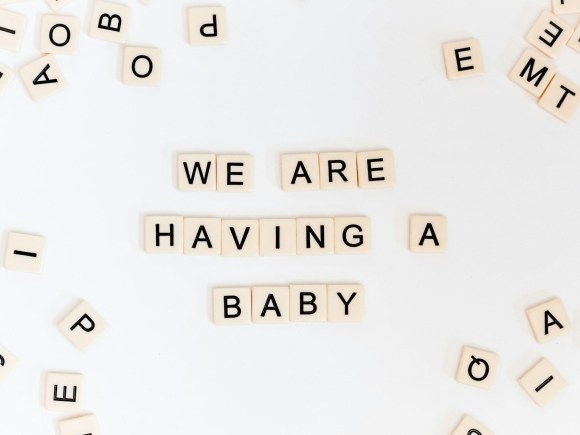Cats are mysterious creatures, and their pregnancies can sometimes catch us by surprise. Whether you’re a new cat owner or have had feline companions for years, understanding the signs of pregnancy in cats is crucial for their health and well-being.
In this comprehensive guide, we’ll delve into the telltale signs of a pregnant cat and outline the essential steps to take once you suspect your furry friend is expecting.
Signs of Pregnancy in Cats

Changes in Appetite and Weight
One of the earliest signs of pregnancy in cats is a change in their appetite. When it comes to cat pregnancy, some cats may experience increased hunger, while others may lose interest in food altogether. Additionally, you may notice your cat’s weight fluctuating; she may gain weight gradually as the pregnancy progresses.
Behavioral Changes
Pregnancy can also bring about behavioral changes in cats. Your normally independent cat might become more affectionate and seek out extra attention from you. On the other hand, some pregnant cats may become more withdrawn or irritable due to hormonal fluctuations.
Enlarged Abdomen
As the pregnancy advances, your cat’s abdomen will gradually enlarge. This is one of the more noticeable signs of pregnancy and typically becomes evident around three to four weeks after conception. However, keep in mind that a distended abdomen can also indicate other health issues, so it’s essential to consult a veterinarian for confirmation.
Changes in Nipple Color and Size
Another telltale sign of pregnancy in cats is changes in their nipples. You may notice that the nipples become darker in color and more prominent. This is due to the hormonal changes that occur during pregnancy, preparing the cat’s body for nursing kittens.
Nesting Behavior
Just like humans, pregnant cats often exhibit nesting behavior as they prepare for the arrival of their kittens. They may seek out quiet, secluded areas to build a nest or rearrange bedding to create a cozy space for their offspring.
Increased Vocalization
Some pregnant cats become more vocal than usual, especially during the later stages of pregnancy. They may meow more frequently or exhibit other vocalizations to communicate their needs or discomfort.
Veterinary Confirmation
While these signs can indicate pregnancy, the most reliable way to confirm whether your cat is pregnant is through a veterinarian. A vet can perform a physical examination, ultrasound, or blood test to definitively diagnose pregnancy and assess the cat’s overall health.
What to Do Next

Schedule a Veterinary Visit
If you suspect that your cat is pregnant based on the signs mentioned above, the first step is to schedule a veterinary visit. A professional assessment is crucial to confirm the pregnancy, determine the stage of gestation, and address any potential health concerns.
Provide Proper Nutrition
Pregnant cats have increased nutritional requirements to support their health and the development of healthy kittens. Your veterinarian may recommend a specific diet tailored for pregnant or nursing cats, which typically includes high-quality kitten food rich in protein, vitamins, and minerals.
Create a Comfortable Environment
As your cat progresses through her pregnancy, create a comfortable and safe environment for her and the upcoming kittens. Provide a quiet, warm nesting area with soft bedding where she can rest and give birth comfortably.
Monitor Health and Behavior
Keep a close eye on your pregnant cat’s health and behavior throughout the pregnancy. Attend scheduled veterinary check-ups, monitor weight gain, and observe any changes in appetite, activity levels, or demeanor. Notify your vet immediately if you notice any concerning symptoms or complications.
Prepare for Birth and Postpartum Care
As the due date approaches, prepare for the birth of the kittens and postpartum care for the mother cat. Set up a birthing box or area with clean towels, a heating pad (set on low), and necessary supplies like clean towels, scissors for cutting umbilical cords (if needed), and contact information for emergency veterinary care.
Supportive Care During Labor
During labor, provide supportive care to your cat while allowing her to instinctively manage the birthing process. Avoid unnecessary interventions unless advised by a veterinarian. Be prepared to assist if needed, such as helping to break amniotic sacs, gently cleaning newborn kittens, and ensuring they latch onto the mother’s nipples to nurse.
Postpartum Monitoring and Veterinary Follow-Up

After the kittens are born, monitor the mother cat and newborns closely for the first few weeks. Ensure that all kittens are nursing and gaining weight appropriately.
Schedule a postpartum veterinary check-up for the mother cat to assess her recovery, address any health issues, and discuss vaccinations, deworming, and spaying/neutering plans for the kittens.
Recognizing the signs of pregnancy in cats and taking appropriate steps for care and preparation are essential for ensuring a smooth and healthy experience for both the mother cat and her kittens.
By staying observant, seeking veterinary guidance, and providing proper support throughout the pregnancy and postpartum period, you can help your cat navigate this special journey with comfort and confidence.



Leave a Reply